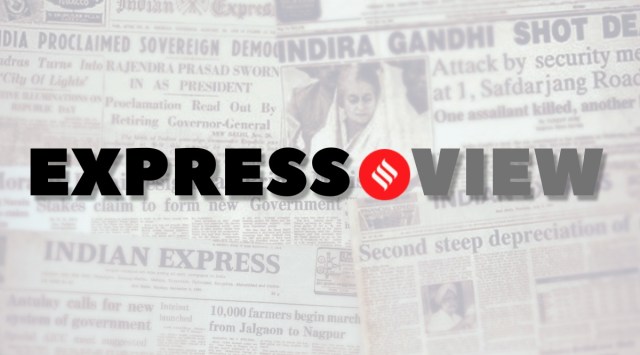
The political discourse in Karnataka is getting coarser by the day. A senior minister of the BJP government in Bengaluru recently said at a public rally that the leader of Opposition and former chief minister, Siddaramaiah, should be “finished off” just like Tipu Sultan was. Higher Education Minister C N Ashwath Narayan has since regretted his remarks in the legislative assembly. Unfortunately, Narayan’s remark is representative of the polarising rhetoric deployed by many senior BJP functionaries to mobilise voters. Narayan spoke soon after state BJP chief Nalin Kumar Kateel, and before him, Union Home Minister Amit Shah, invoked Tipu as a symbol of anti-Hindu politics. Siddaramaiah, in particular, has been their target as he had attacked the BJP campaign in the state as communal. The divisive speeches may or may not win the BJP votes, but in the long run it can do a great deal of harm to the state’s record in privilleging liberal, secular values.
The framing of Tipu Sultan in terms of his faith and as a divisive monarch is troubling and ahistorical, considering his record as a ruler of Mysore. BJP chief ministers such as B S Yediyurappa and Jagadish Shettar too have in the past, celebrated Tipu Jayanthi for Mysore had emerged as a major kingdom during the sultan’s reign. The 18th century ruler, who died fighting the East India Company, is now pitted against Rani Chennamma and others, in a bid to create a fault line. This follows a pattern. The Karnataka BJP in recent times has sought to shift the emphasis of its politics from Hindu communitarianism that focused on patronising influential mutts, seers and religious groups to hardline Hindutva agendas. Since 2021, when Yediyurappa was shifted from the state leadership, the Karnataka BJP has campaigned aggressively on issues such as hijab and halal meat. The focus on furthering the religious fault line seems to have badly affected governance in the state. The monsoon, for instance, exposed the crumbling infrastructure in Bengaluru, the state capital and the main driver of the state’s economy, whereas corruption charges have dented the Bommai government’s image. On Friday, the chief minister presented the state budget, which had a Rs 10,000 crore grant component for the “comprehensive development” of Bengaluru including steps to end congestion and flooding in the city. This is welcome but how effective it will be depends on how seriously this will be implemented.
With elections due in April, political parties must rein in their leaders from pursuing the path of polarisation. Mandates ought to be sought on the present government’s record not on real and imagined history. For a state and its people who want a better future.